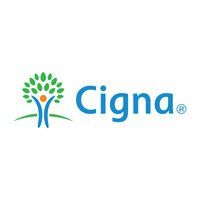The Science Behind SAD: Why Winter Can Make Us Feel Down
This is a subtitle for your new post

Tony is the kind of guy who really comes alive when he’s outdoors in Apex and Raleigh. Living in the South is perfect for him because he loves the warm weather and all the chances it gives him for outdoor adventures. Every summer, Tony looks forward to strapping on his hiking boots and heading to Jordan Lake. He feels right at home on the scenic trails and enjoys the fresh air.
On weekends, you’ll find him out on Falls Lake, paddling through the calm waters with a big smile on his face. For Tony, summer means making the most of the sunshine and enjoying every moment he can outside.
But fall is a different story. It’s the time of year when Tony starts to feel a little off. In fact, the colder it gets, the more his mood seems to drop. The outdoor adventures that once excited him now felt like a distant memory. He can’t understand why he deals with such intense sadness and tiredness this time of year.
The switch from the fun, sunny days of summer to the cooler, darker days of fall leave him struggling with feelings that don’t match his usual upbeat attitude.
Tony’s experience is not unusual. For many people, the transition from fall to winter can trigger a condition known as Seasonal Affective Disorder (SAD), a form of depression that surfaces during the colder, darker months. Understanding the science behind why winter can bring about these feelings is crucial in finding effective treatment and reclaiming a sense of well-being.
The Science Behind Tony’s Winter Blues
Circadian Rhythms and Light Exposure
As winter arrives, the days become shorter, and natural light becomes scarce. Our circadian rhythms, which regulate sleep and mood, rely heavily on light to function optimally. For Tony, the reduction in daylight disrupts his circadian rhythm, causing him to experience difficulties with sleep and a noticeable dip in his mood. The lack of sunlight leads to an imbalance, making him feel more lethargic and less motivated.
Melatonin and Serotonin Levels
The decrease in daylight also affects the levels of key neurotransmitters in the brain. With less exposure to sunlight, melatonin levels rise, leading to increased sleepiness and a drop in energy. Simultaneously, serotonin, which helps regulate mood, tends to decrease, exacerbating feelings of sadness and depression.
Vitamin D Deficiency
Another contributing factor to Tony’s winter blues was Vitamin D deficiency. Reduced sunlight exposure means less Vitamin D production in the body, which is vital for mood regulation. Tony’s deficiency in Vitamin D likely worsen his feelings of sadness, making the winter months feel even more difficult to navigate.
Finding the Light: Exploring Treatment Options
Determined to find relief this year, Tony reached out for help and explored various treatment options to manage his symptoms. Here’s how Tony navigated his path to feeling better:
1. Medication Management
Tony began by consulting with his psychiatrist, who prescribed antidepressants to help balance neurotransmitters and stabilize his mood. While Tony experienced some improvement, his symptoms persisted. It’s important to recognize that while medication can be effective for many, it doesn’t always work perfectly for everyone, and additional support may be needed.
2. Light Therapy
To complement his medication, Tony incorporated light therapy into his routine. Using a light box designed to mimic natural sunlight, he was able to regulate his circadian rhythms and boost his serotonin levels. Over time, Tony noticed that light therapy helped lift his mood and provided a welcome boost during the dreary winter days.
3. Exploring Advanced Treatments
Thankfully for Tony, light therapy and medications were enough to boost his mood and help him feel better. Unfortunately, about one-third of people aren’t helped by medications, and their depression isn’t seasonal; it’s persistent!
If this sounds like you or someone you love, we recommend exploring advanced treatments like Transcranial Magnetic Stimulation (TMS) and Spravato. TMS is a non-invasive procedure that uses magnetic fields to stimulate brain cells and offers a new approach to managing depression. Spravato is a nasal spray used in conjunction with an antidepressant that can provide rapid relief.
Embracing a Brighter Future
Tony’s journey through the winter months highlights the importance of understanding the science behind SAD and seeking appropriate treatment. If, like Tony, you notice your mood changing with the seasons, don’t hesitate to reach out for help. Whether it’s medication management, light therapy, or exploring advanced treatments like TMS and Spravato, support is available to help you navigate these challenges.
Remember, you don’t have to face the winter blues alone. With the right support and treatment, you can find relief and embrace the season with renewed energy and optimism. Let Tony’s story inspire you to take proactive steps in managing your mental health and find the light even during the darkest months.





















